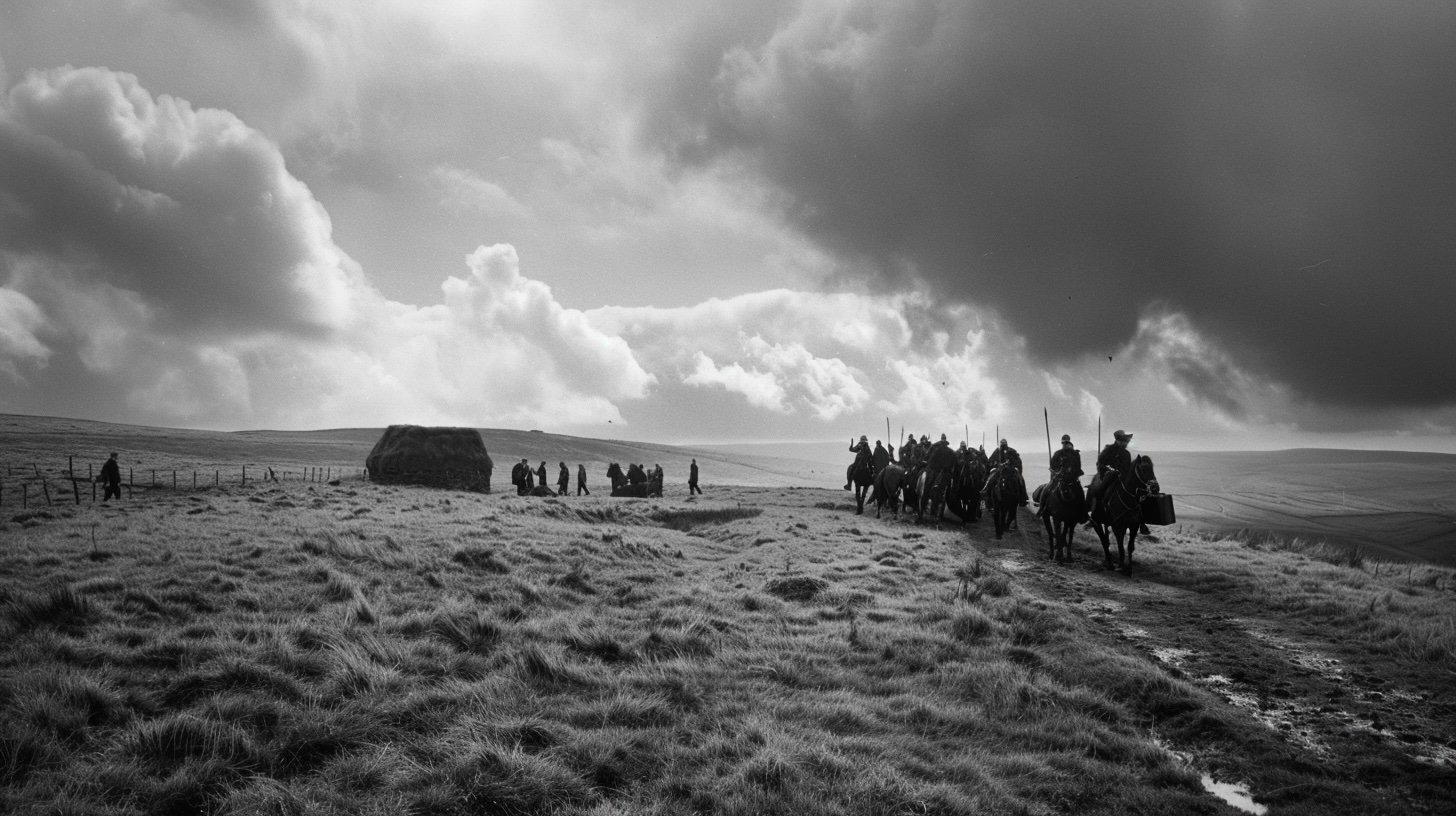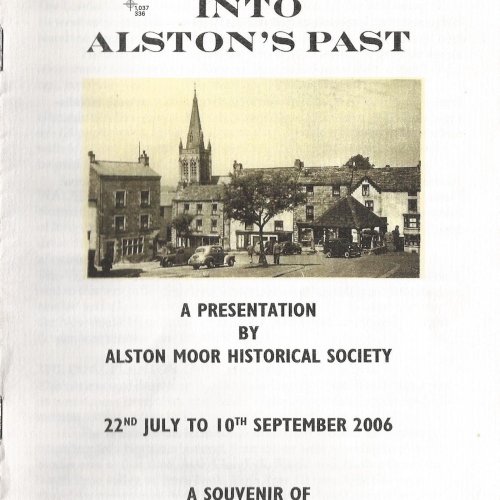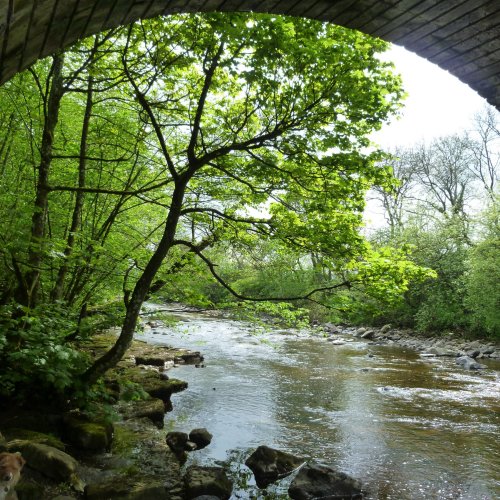Alston Moor does not figure prominently in the vicissitudes of the struggle between king and parliament..... in the middle of the seventeenth century, but, as an undated letter of 1642 shows, the war came at least once to the area.
In 1642, the north of England, as well as other parts of the country, where the old feudal order was strongest, was held by the king, and his commander in the area was Sir Philip Musgrave of Eden Hall near Penrith.
On an unspecified day during 1642, Sir Philip received the following urgent message from one James Birkbeck, who was presumably an officer under his command. I have translated the script (except for one undecipherable word) but the spelling and punctuation, etc., follow the original text.

“Sir, sonce I writ my letter heare came Thomas Walton of Alstonmore who reports for sertan that there is 60 horse at least of the parliments troupers in Alstonmore eversonce yesterday at alevon a clock, who hath taken Captain Whitfield & his lieutenant with many outhers of Sir henerie flethers troups before any of them were aware of there coming. Remeenes there yet ploundering houses and taking men presaners for anything that is yet know to us // this considerd I thought it not amisse to send your best horses to Carlile // It were everie neysearie that som horse and foot were quartered beyond Eaden and som apointed for scouting in the night time especially for they may come from where they ar into our daylles in 2 houres time // Intelligence is goon to Sir henerie flether I hoop he will tak som cayer in this bussines for they (sake?) I shall duble our sentre hoarse untill I have further order from you // in the mean time I have sent one or two of our troupers into Alstonmore to scout there to bring me intelligence when or what they remove as soon as they return I shall give you further intelligence //
James Birkbeck
they killed one man onely.”
This letter is one of many in the files of letters to Sir Philip Musgrave stored in the County Records Office, Carlisle, but it is the only one concerning this incident, which of course leaves many questions unanswered.
From the letter, it would seem that Sir Philip was away from home and that Birkbeck was acting in his stead. The messenger Thomas Walton must have taken quite a risk of life and limb in delivering his message, one can imagine a lone rider evading the Roundheads and galloping at full pelt over Hartside.
But, what of the Roundheads? In a Royalist area, how did so many men on horseback manage to travel unmolested, let along undetected by the Royalists? Where did they come from in the first place? The nearest territory held by Parliament was around Bradford, or the port of Hull, both many miles away. Had they been hiding in Scotland?
Did the Royalists feel so secure in their own territory that they felt no need for an information-gathering network, or even sentries, to give advance warning of an enemy approach? And, of course, what was Musgrave’s reaction? Did he send a retaliatory force? Did a battle ensue, or had the Parliamentarians disappeared as quickly and effectively as they had appeared? Did they “come into our daylles”? Did Birkbeck’s scouts even return safely?
Like so much of history, a piece of information can raise more questions than it answers, but this piece certainly shows a very dramatic moment in Alston’s past.
(Postscript: Sir Henry Fletcher of Hutton was killed at the battle of Rowton Heath near Chester in 1645. Sir Philip Musgrave died in 1678 aged 70. Captain James Birkbeck was killed in 1644 during the siege of Carlisle.)

 Home
Home  Events
Events  Membership
Membership  Find Us
Find Us  About Us
About Us  Volunteer
Volunteer  Contact
Contact  Research Links
Research Links  Physical Archives
Physical Archives  Digital Archives
Digital Archives  1000 Year Lease
1000 Year Lease  Previous AMHS Websites
Previous AMHS Websites  Search
Search  Past Meetings
Past Meetings  Articles
Articles  Jubilee Exhibition
Jubilee Exhibition  Photo Gallery
Photo Gallery  Facebook Page
Facebook Page  Facebook Group
Facebook Group 












 Home
Home  Events
Events  Membership
Membership  Find Us
Find Us  About Us
About Us  Volunteer
Volunteer  Contact
Contact  Research Links
Research Links  Physical Archives
Physical Archives  Digital Archives
Digital Archives  1000 Year Lease
1000 Year Lease  Previous AMHS Websites
Previous AMHS Websites  Search
Search  Past Meetings
Past Meetings  Articles
Articles  Jubilee Exhibition
Jubilee Exhibition  Photo Gallery
Photo Gallery  Facebook Page
Facebook Page  Facebook Group
Facebook Group 
